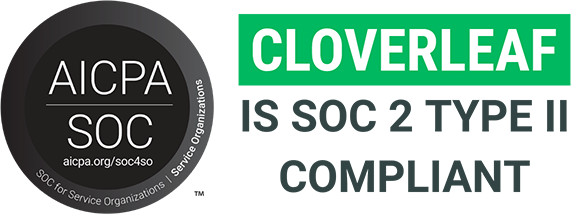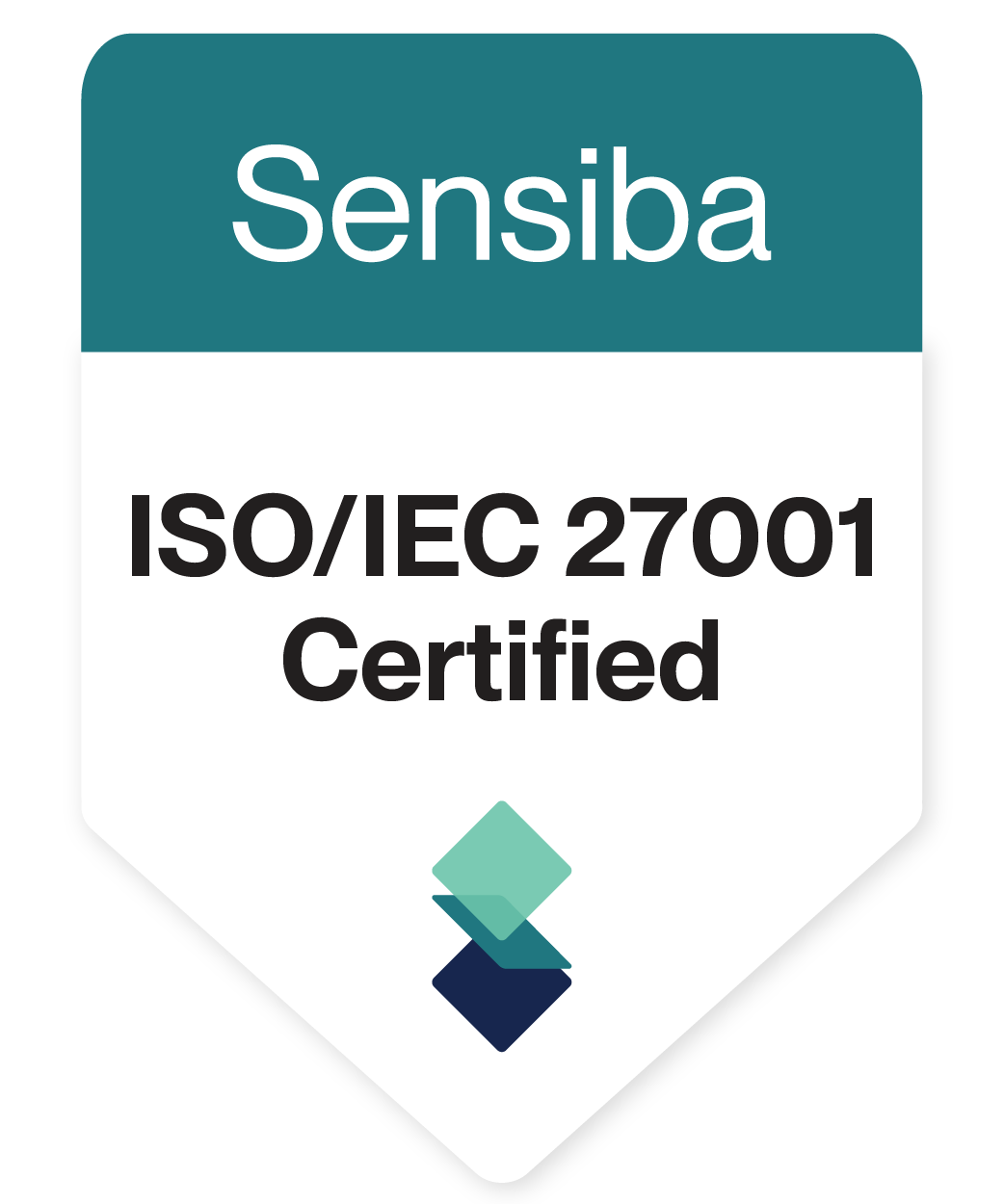Emotional intelligence in the workplace can greatly impact the success and productivity of a team. It involves understanding and managing your own emotions, being aware of other’s emotions, and adapting to new situations.
Traditional leadership models have primarily focused on technical skills rather than soft skills like emotional intelligence. Some leaders may not understand the impact of emotions on workplace performance and decision-making. At the same time, others may believe emotions are personal and have no place in the workplace.
Plus, developing emotional intelligence skills can be time-consuming and may not be seen as a priority for leaders focused on meeting short-term goals and targets. However, as awareness of the importance of emotional intelligence continues to grow, it is becoming increasingly clear that leaders who invest in developing their emotional intelligence and that of their teams can reap significant benefits for their organizations.
How Is Emotional Intelligence Being Used In The Workplace?
Emotional intelligence in the workplace is critical to mastering interpersonal skills, crucial for conflict management and effective communication. It involves understanding and regulating emotions to make thoughtful, objective decisions. With the ability to recognize others and their own emotions, employees can support a more collaborative and empathetic work environment. Assessment tools like MBTI and DISC can identify individual strengths and preferences, helping teammates to understand each other to drive success and well-being.
In this post, we will explore why emotional intelligence is so important in the workplace, provide examples of self-awareness, and share strategies for increasing emotional intelligence among teammates.
Why Is Emotional Intelligence In The Workplace So Valuable?
Individuals with high EQ tend to be better leaders, have stronger interpersonal skills, and are more effective in handling workplace stress and conflict.
For example, a study by TalentSmart found that 90% of top performers have high EQ. Another study by Hay Group found that leaders with high EQ have teams that are more engaged, more productive, and experience less turnover.
Research in the Journal of Organizational Behavior outlines that individuals with high emotional intelligence are better equipped to overcome one of the most significant obstacles in their work-life: employment gaps. These gaps can be involuntary, such as a termination, or voluntary, like taking time off to care for family. The higher an employee’s emotional intelligence, the more likely they are to navigate interruptions in their employment successfully.
It’s no surprise that high EQ is linked to increased job satisfaction, improved job performance, better relationships with coworkers and leaders, and employee retention.
And soft skills aren’t just great for creating a fulfilling and pleasant work environment. The link between profit and leaders with high emotional intelligence is clear. In one study, CEOs whose employees rated them high in character had an average return of 9.35% over a two-year period, nearly five times as much as companies with CEOs who had low character ratings.
Prioritizing emotional intelligence in the workplace can drive significant improvements to an organization’s bottom line. If high EQ among teammates can affect job satisfaction, performance, and employee retention, investing in EQ development within teams can be a wise business decision for leaders.
IF EQ In The Workplace Is So Important, Why Do Top-Level Leaders Resist Prioritizing It?
It’s not uncommon for leaders to push off emotional intelligence initiatives because they are familiar and comfortable with traditional measures of job performance. Things like technical skills and intelligence seem easier to quantify and measure.
A Wall Street Journal survey of 900 executives found that 92% said soft skills were equally important or more important than technical skills. But 89% of those surveyed said they have a “very or somewhat difficult time finding people with the requisite attributes.”
Additionally, they may not realize the impact of soft skills training in achieving long-term success. Further, the lack of an established or standardized method for measuring EQ could also lead to it being overlooked as a valuable metric for success.

For decades scholars have debated the relative importance of cognitive intelligence (IQ) versus emotional intelligence (EQ) to workplace performance. Research shows both are helpful. However, in the era of COVID-19, my bet is on emotional intelligence playing a much stronger role. –fastcompany.com
Remote work and other factors shaping the future workplace experience require stronger levels of communication and collaboration. As traditional workplace dynamics and routines have been disrupted, EQ becomes even more crucial in helping teammates navigate workload, well-being, conflicts, and fulfillment to create a place to thrive in their work.
We define emotional intelligence (EQ) as the power to identify, handle, and express emotions and to comprehend and empathize with the emotions of others. When it comes to the workplace, having a high EQ is crucial for building trust and managing conflict to be an effective team.
Self-awareness emerges from two places:
Internally: Understanding one’s desires, strengths, weaknesses, and impact on others.
Externally: Realizing how others interpret and experience you.
When it comes to internal and external self-awareness, it’s tempting to value one over the other. But leaders must actively work on both seeing themselves clearly and getting feedback to understand how others see them. The most highly self-aware people are actively focused on balancing the scale. – Harvard Business Review
Teams that exercise emotional intelligence do more with less drama. They are tuned into their internal emotional life, can manage those feelings, and transition that energy into positive team momentum.
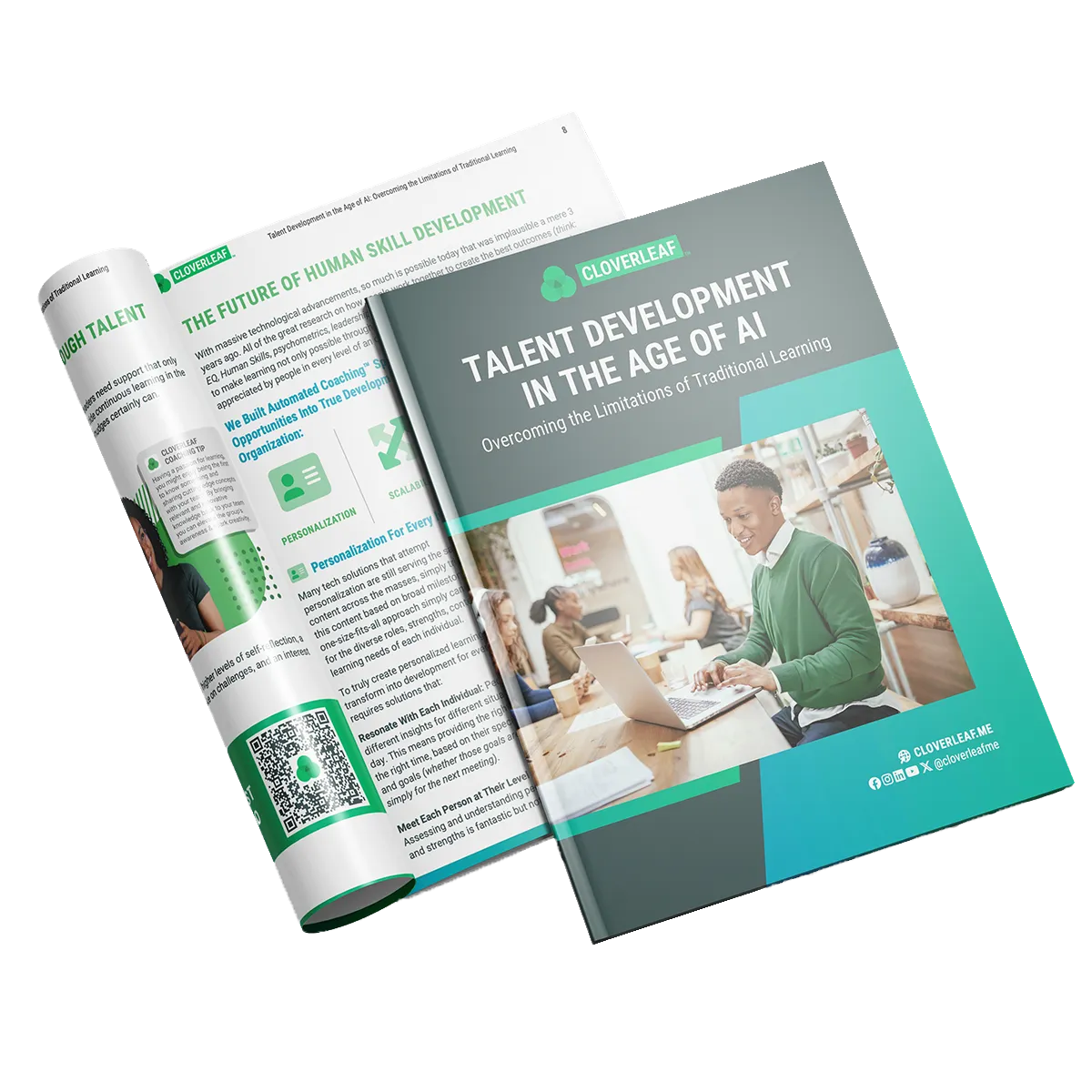
Do You Want To Increase Emotional Intelligence In Your Workplace?
- Scale development so that it is available to each team member
- Personalize growth to individual strengths and needs
- Integrate learning so it is actually in the flow of work
- Develop human skills fast enough to solve business problems
- Prove the ROI of your development programs
What Does Self-Awareness In The Workplace Look Like?
Self-awareness is crucial to emotional intelligence, starting with understanding your emotions, behaviors, and thoughts. In the workplace, having a strong sense of self-awareness can take many shapes and forms, such as:
Acknowledging when you’re feeling overwhelmed, frustrated, or angry and taking proactive measures to manage those emotions
Being mindful of how your actions and words can impact others around you
Taking a step back and reflecting on your behavior to pinpoint areas that need improvement
Seeking feedback from your coworkers and superiors to understand yourself better.
Emotional intelligence is being able to understand your own emotions and manage them. It’s also the ability to observe others’ emotions, understand a situation, and adapt to remain productive at that moment.
By taking the time to understand your emotions, behavior, and thoughts and being proactive in managing them, teams can foster a positive productive work environment.
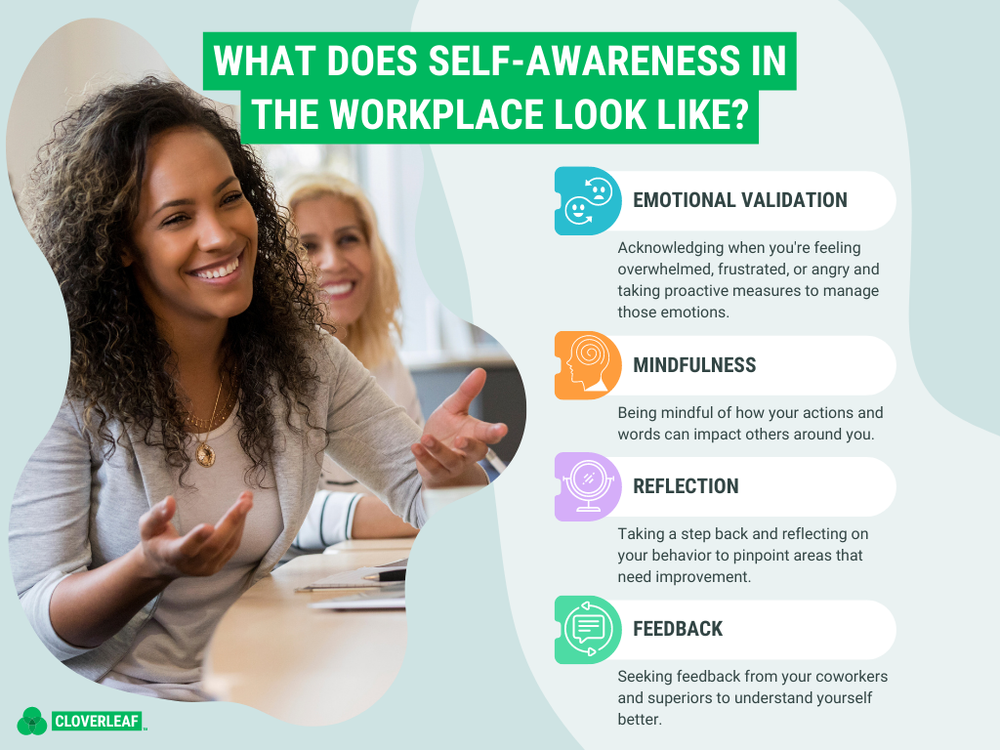
Examples Of Self-Awareness In The Workplace
Have you ever had one of those mornings where everything seems to go wrong? You arrive at work feeling overwhelmed. Every person can relate. Maybe you lost your dog, became angry in traffic, or experienced a disagreement with a family member before leaving the house. But, what if you could process those emotions and release them, allowing you to start your work day feeling recentered and in control?
Emotional intelligence can help you acknowledge and understand your emotions to prevent them from dictating your experience at work. Recentering your feelings to ensure they do not influence how you treat your teammates or drive you to make decisions because of things outside of work.
As a leader or coworker, it’s important to not only manage your own emotions but also be aware of the emotions of those around you. If you notice a colleague coming in with a negative demeanor or a bit huffy, take a moment to ask how they’re doing and if everything is okay. By simply asking questions, you can help them process their emotions and release any tension they might be feeling.
8 Questions To Help Teammates Process Their Emotions And Refocus On Work
How are you feeling right now?
Is there anything that you need to vent about or share?
Can you walk me through what has been bothering you?
What steps can we take to resolve the situation?
How can I support you at this moment?
Is there any specific task or goal you need help with?
Can you tell me more about your experience and how it has impacted you?
How do you see yourself moving forward from this situation?
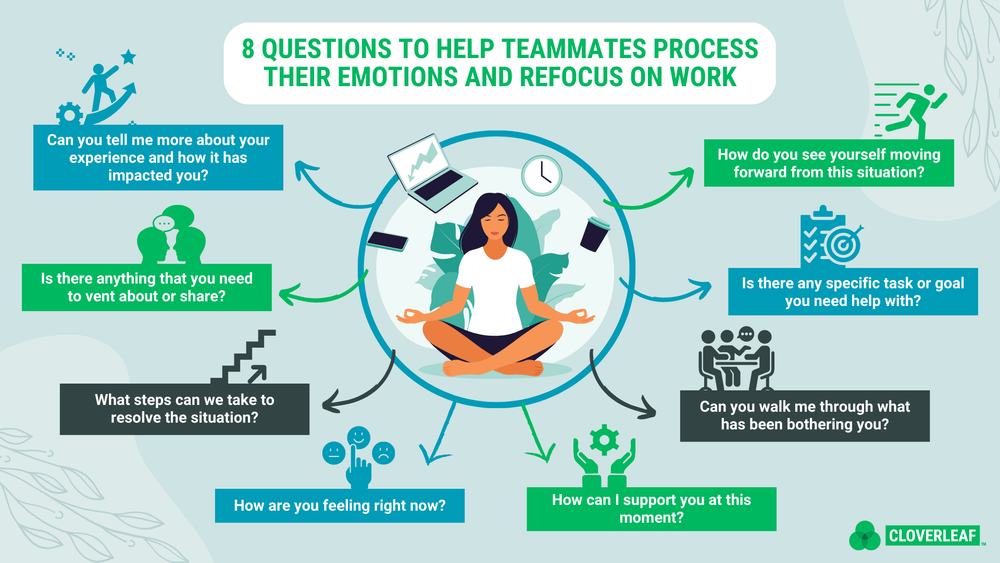
By actively listening to team members verbalize their feelings, you can help them become more aware of their own emotions to help them feel more centered and able to move forward. This small act of empathy can go a long way in creating a positive work environment and improving overall workplace relationships.
How To Increase Emotional Intelligence Among Teammates
The best way to increase emotional intelligence in the workplace is to help improve self-awareness within each team member. Self-awareness enables individuals to identify areas for improvement, manage their emotions, and make more mindful decisions, which is foundational to increasing emotional intelligence.
Teams can proactively support EQ-based initiatives by implementing strategic efforts to help members feel, recognize, regulate, and communicate their emotions.
Utilize Automated Coaching™: Cloverleaf provides personalized, ongoing coaching tips to help employees develop self-awareness and powerful insight about teammates.
Celebrate Feedback And Reviews: Encourage employees to give and receive feedback in a safe by creating the structure to do so with performance management platforms.
Empower Learning and Development: Offer training programs that hone in on emotional intelligence, self-awareness, and personal growth.
Cultivate Open Communication: Work with your team leaders to establish consistent 1-on-1 meetings with direct reports to establish clear initiatives, trust, collaboration, and relationships.
Leaders play a pivotal role in shaping the culture and dynamics of the workplace. That’s why leaders must make emotional intelligence a priority. If not, the rest of the organization may not value developing their EQ or fully supporting initiatives.
And that’s where things can start to unravel. Even further, teams may lose their best talent as many seek places of employment that recognize the importance of emotional intelligence in the workplace.
Talent turnover is an expensive problem and, therefore, must be solved. Thankfully, it’s a problem that can be solved. For the most part, employees leave for reasons that are within the control of employers:
Culture
Work Environment
Growth Opportunities
Leadership Disconnect

By prioritizing emotional intelligence and creating an environment where employees feel valued and challenged, organizations can retain top talent and even attract it.
Conclusion
The next time you encounter an emotionally charged situation, consider using a simple checklist to guide your response. Ask yourself, “How am I feeling?” and “What can I do about it?”
Encourage others to share their emotions by asking, “How are you feeling today?” and “How do you want to show up for this?”
Starting a meeting with these questions can help team members process their emotions and be more present in the moment. Consider offering support by actively listening, responding, or taking action when addressing a situation. This approach can help increase emotional intelligence and create a more supportive and effective work environment.
If you’re looking for additional ways to enhance emotional intelligence in the workplace, visit the post that details an Employee Engagement Strategy For A Human-Centered Workplace.








